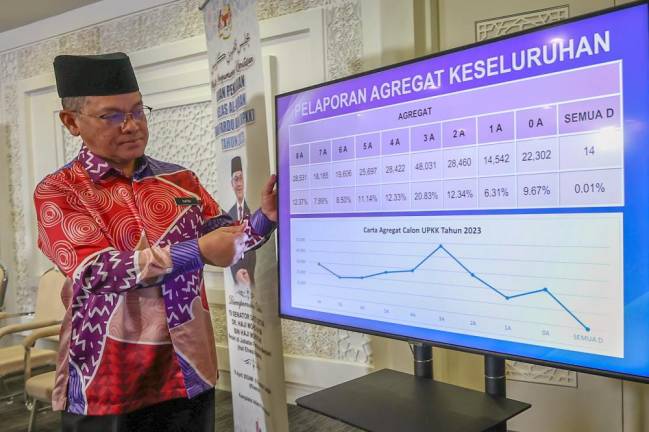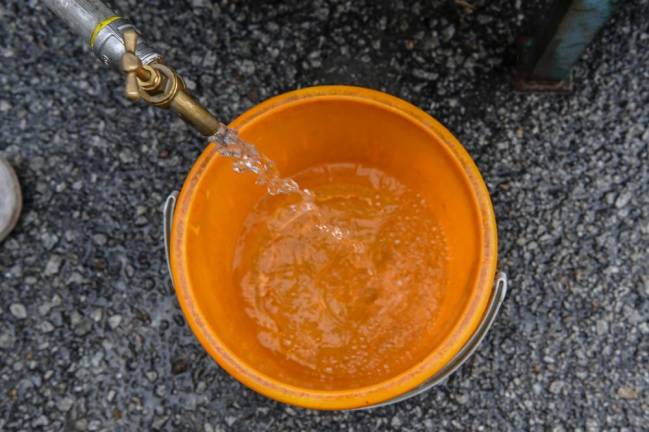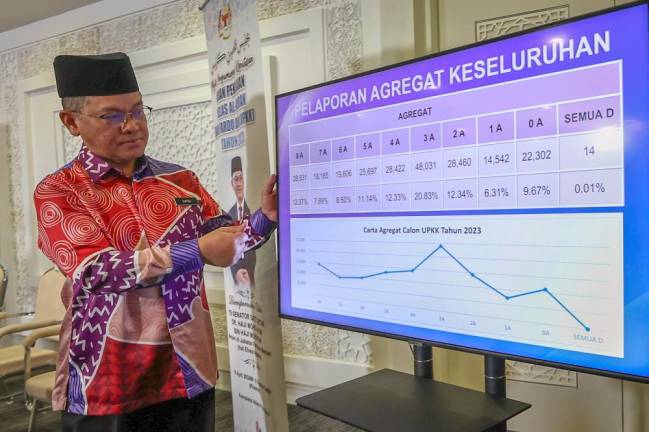LAST Monday, Tan Sri Muhyiddin Yassin announced his Cabinet line-up. He accomplished this politically-challenging task of choosing four senior ministers, 27 ministers and 38 deputy ministers to form a Cabinet balanced politically and regionally less than eight days after he was sworn in as Malaysia’s eighth prime minister.
Muhyiddin needs to undertake a second assignment with equal, if not greater, alacrity – buttressing the Malaysian economy against a continually growing number of coronavirus victims worldwide, the recent onset of a global oil price war and a highly volatile Wall Street likely to impact Malaysia’s economic growth prospects adversely.
Admittedly, the then interim prime minister Tun Dr Mahathir Mohamad announced a RM20 billion stimulus plan on Feb 27 to mitigate the impact of the coronavirus, boost consumer spending and to assist sectors badly hit by the coronavirus, particularly tourism and air travel.
Although adequate then, there are several reasons why a new plan of action is now needed that is stronger, more comprehensive and most of all, implemented immediately.
First, Covid-19 has now spread beyond Asia to Europe, in particular northern Italy, and the US, with the number of victims accelerating rapidly. This has fuelled fears the outbreak could become a global pandemic.
Second, Opec’s failure to agree with Russia on production cuts to boost oil prices prompted Saudi Arabia to announce on March 7 that it would step up output to protect its market share. Fears of a devastating price war caused the global benchmark Brent oil for May settlement to plummet to US$31.02 last Monday, the lowest since February 2016.
This, in turn, triggered a tidal wave of forecasts suggesting an oil Armageddon. Ali Khedery, Exxon’s former senior Middle East adviser and currently CEO of US strategy firm Dragoman Ventures, wrote: “US$20 oil in 2020 is coming.”
Fractionally less pessimistic, Goldman Sachs cut its Brent forecast for the second and third quarter this year to US$30 a barrel, although it warned prices could dip into the US$20 level.
Sharply lower oil prices will impact Malaysia’s federal government finances significantly, given that Budget 2020 was premised on oil prices of US$62 a barrel. Every drop of US$1 a barrel could cause Putrajaya to suffer a RM300 million drop in revenue.
Third, the conjunction of the widening coronavirus and a potential oil price war has spooked Wall Street. Last Monday, the Dow Jones Industrial Average (DJIA) tumbled 2,014 points – the biggest point drop in history – while its 7.8% plummet was the worst day since the 2008 financial crisis.
More worrying, yields on US 10-year Treasury bonds plunged to an all-time low of 0.318% in overnight trading. As a benchmark for mortgage rates and auto loans and an indicator of investor sentiment, the 10-year Treasury bond assumes an outsized importance.
Bonds are tradeable loans issued by companies or governments that offer interest payments known as the coupon rate. To calculate the bond yield – or the rate of return – the coupon rate is divided by the bond price. A low bond yield means bond prices are high due to rising demand.
US Treasury bonds have tenures ranging from 10 to 30 years. Since US Treasury bonds are the safest investment asset, an unprecedented bond yield below 1% suggests investors fear a recession as well as a resumption of interest rate cuts by the US Federal Reserve.
This trifecta of events suggests Muhyiddin’s Cabinet must act decisively and speedily. Having several experienced ministers in key portfolios, Muhyiddin should seriously consider calling Parliament into session much earlier than May 18.
Given the tumbling price of Brent oil, Parliament may need to pass a supplementary budget sooner rather than later. In deciding the timing and scope of policy actions, top policymakers would do well to remember the Chinese parable of a carp in a dry rut.
A poor man named Zhuang Zhou went to the Lord Keeper of the River to borrow some grain. In response, the Lord Keeper said he would give Zhuang Zhou three hundred taels of silver after collecting the rents.
An indignant Zhuang Zhou told the Lord Keeper he met a carp lying on a dry rut along the road.
“I came from the East Sea. I am dying from lack of water. Please get me a small bucket of water to save my life,” the carp asked Zhuang Zhou
“I am going to the south. I’ll divert the water in the great river here by digging a canal,” Zhuang Zhou promised the carp.
“I need only a small bucket of water. I will be thoroughly dried up when you have diverted the water from the great river. You will have to go to a stall selling dried fish to find me there,” the angry carp replied.
In short, speedy aid is more essential than the quantum of assistance.
Opinions expressed in this article are the personal views of the writer and should not be attributed to any organisation she is connected with. She can be contacted at siokchoo@thesundaily.com















